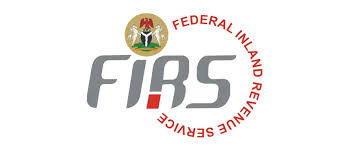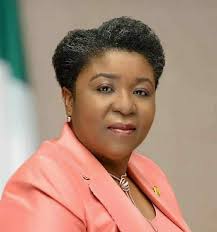News
Nigeria Ranks 154 On Corruption Perception Index
The Civil Society Legislative Advocacy Centre (CISLAC) and Transparency International (TI), yesterday, released the 2021 Corruption Perception Index (CPI), indicating that Nigeria ranked 154 out of 180 countries.
This was made known by the Executive Director, CISLAC, Auwal Ibrahim Rafsanjani, during a press conference in Abuja.
According to Rafsanjani, the index revealed that Nigeria scored 24 out of 100 points in the 2021 CPI.
The seven parameters used for the ranking called weaknesses as highlighted in the report include Weakness 1: The “Non-Compliance/Internal Control Weaknesses Issues in Ministries, Departmentsand Agencies (MDAs); Weakness 2: Security Sector Corruption; Weakness 3: Failure to Investigate High Profile Corruption Cases and prevent Illicit Financial Flows (IFFs); Weakness 4: Absence of asset recovery, protection of whistle-blowers, and other key anti-corruption legal frameworks; Weakness 5: Judicial Challenges; There is a need for the Nigerian judiciary to speed up its delivery of judgment; Weakness 6: Corruption in the COVID-19 Response; and Weakness 7: Twitter ban, shrinking civic space and intimidation of human rights defenders.”
He said: “Released exclusively in Nigeria by the Civil Society Legislative Advocacy Centre (CISLAC), the National Chapter of TI, the index reveals that Nigeria scored 24 out of 100 points in the 2021 CPI, falling back one point compared to the 2020 CPI. In the country comparison for this year, Nigeria ranks 154 out of 180 countries – five places down compared to the 2020 CPI results.
“The CPI aggregates data from eight different sources that provide perceptions by country experts and business people on the level of corruption in the public sector.
“While the index does not show specific incidences of corruption in the country, it indicates the perception of corruption in Nigeria. The index is completely impartial, objective and globally acknowledged as the most widely used cross-country parameter for measuring corruption.
“This CPI result comes at a point when the Nigeria as a country is battling with rising nation-wide insecurity, high unemployment rate and damning revelations around public finance management by the auditor general and investigative journalists, amongst others.”
However, according to the CISLAC boss, the data used for the CPI was not collected by CISLAC/TI-Nigeria or any of their partners; the data collection was done by independent and reputable organisations with sound methodologies.
“It is important to stress that this is not an assessment of Nigeria’s anti-graft agencies who are making commendable efforts in reducing (in the fight against) corruption in Nigeria despite the political interference they face. Rather, the CPI goes beyond the anti-graft agencies”, he pointed.
He further stated that, “In October last year, we received the report of the committee set up by the government in March 2021 to review Nigeria’s rating on the 2020 CPI shortly after CISLAC/TI-2
“Nigeria released the 2020 CPI. CISLAC/TI-Nigeria sees this move as a good step and would like to call on the government to further examine the weaknesses listed below and consider actions which will tackle systemic corruption and salvage Nigeria’s deteriorating image when it comes to corruption.
“Accordingly, CISLAC/TI-Nigeria has listed key weaknesses to explain why Nigeria may not have improved in the fight against corruption. We feel that these areas require immediate improvement for the sake of the well-being of ordinary Nigerians and the economy.”
Meanwhile, the report identified some weaknesses that led to Nigeria dropping five places in the 2021 CPI, which Deputy Director, Socio-Economic Rights and Accountability Project (SERAP), Kolawole Oluwadare, read two weaknesses; The “Non-Compliance/Internal Control Weaknesses Issues in Ministries, Departmentsand Agencies (MDAs)” report for 2019 published by the Office of the Auditor General of the Federation in November 2021, have left Nigerians in awe. Recent revelations made on the 17th of January 2022 by BudgIT on the duplication of projects in the 2022 budget do less to palliate the pandemic corruption currently experienced despite a rising unemployment rate of 33%.
Weakness 2: Security Sector Corruption: The systemic corruption in the Nigeria Police Force has sadly continued unabated and with the police at the frontline of Nigeria’s criminal justice system with enormous powers to investigate and prosecute crimes. This weakness puts the country in bad light.
As a matter of fact, the Police was indicted by the Auditor General’s report on the “Non-Compliance/Internal Control Weaknesses Issues in Ministries, Departments and Agencies (MDAs) published in November 2021” and Nigerians are still struggling to understand how 178,459 arms and ammunition were missing from the armoury of the Nigeria Police without trace. Of this figure, 88, 078 were AK-47 assault rifles and 3,907 assorted rifles and pistols. For context, these arms are enough to arm a force equivalent 3 to about 25% of the current strength of the Nigeria Police at 370,000 which gives an explanation on the level of insecurity in the country.
Findings from The Cable Index and the Council of Foreign Relations show that 5,067 Nigerians were killed owing to insecurity in 2021, and an average of 14 Nigerians were killed daily.
According to these findings, this shows a 52.3% rise in reported killings when compared to 2020.
In addition to the above, the auditor general’s report showed that over 17,000 police officers had future dates of employment with hundreds employed before their date of birth.
While Assistant Investigation Editor, CJID, Taiwo Adebayo identified Weakness 3: Failure to Investigate High Profile Corruption Cases and prevent Illicit Financial Flows (IFFs).
“Nigeria’s anti-graft agencies have made commendable progress in their efforts to combat corruption in 2021 with an increase in convictions. However, high profile convictions of Politically Exposed Persons (PEPs) across political, regional and any other form of divide have fallen short of public expectations.
“While we commend the arrest of cyber criminals and call on the anti-graft agencies to do more, there is a need to investigate high profile political cases including those of individuals who have switched political affiliations”, Adebayo said.
Reading Weakness 4: Absence of asset recovery, protection of whistle-blowers, and other key anti-corruption legal frameworks, the Project Coordinator, Progressive Impact Organisation for Community Development (PRIMOG), AdaobiObiabunmuo, said, “When it comes to asset recovery, Nigerian anti-graft agencies have made progress in recoveries, specifically those that have been finally forfeited. Sadly, the repeated failure to enact the Proceeds of Crime Act as a legal framework for the management and utilization of recovered assets in Nigeria which is one of the key pillars of this administration’s anti-corruption strategy is inexplicable! While Nigerians read about these recoveries by the numerous agencies with mandates to recover assets, Nigerians are in the dark as to the status of these recoveries.
“Weakness 5: Judicial Challenges; There is a need for the Nigerian judiciary to speed up its delivery of judgment. The delay in treating high profile cases of corruption dampens the morale of anti-graft agencies. It is also important for the National Judicial Council (NJC) to ensure that judicial officers appointed are competent and qualified.
“The NJC should shun nepotism in its appointment of Judges and also when it undertakes disciplinary actions against Judges.”
Meanwhile, Manager, BudgIT, TolulopeAguloye, said, “Weakness 6: Corruption in the COVID-19 Response, there have been reports of diversion of funds earmarked for Nigeria’s response to the COVID-19 pandemic. Yet, Nigerians are yet to see any high-profile convictions.
“Weakness 7: Twitter ban, shrinking civic space and intimidation of human rights defenders. The final weakness which is very important relates to the shrinking civic space and clampdown on freedom of speech. The theme of the 2021 CPI by TI beams the searchlight on human rights and democracy under attack.
“The arbitrary and illogical decision of the Nigerian government to ban Twitter on the 5th of June 2021 for about seven months stands condemned. While this ban has been lifted just recently, Nigeria is still suffering from the consequences of the ban. According to the CIVICUS monitor, Nigeria’s civic space is repressed.
“On the Freedom House’s Freedom in the World 2021 report, Nigeria recorded a decline with a score of 45 out of 100 from a score of 47 in 2020 and 50 in 2019 (with 0 being not free and 100 being very free).
“The tale is further gloomy when one considers the World Press Freedom Index released in 2021 by Reporters Without Borders which describes Nigeria as “one of West Africa’s most dangerous and difficult countries for journalists.”
News
Learn How To Form Coalition Party From Tinubu, Sowunmi Tells Atiku

Spokesman to former Vice President Atiku Abubakar, and chieftain of the People’s Democratic Party (PDP), Mr Segun Sowunmi, has advised his principal, Atiku, to learn from President Bola Tinubu on how to form a coalition.
The Tide reports that in a bid to wrest power from President Tinubu in 2027, Atiku has been leading the movement by opposition politicians to form a coalition of political parties ahead of the next general election.
Last month, opposition politicians set up a team comprising former Minister of Transpiration, Rotimi Amaechi, and former Governor of Cross River State, Liyel Imoke, to decide whether to float a new party or fuse into an existing platform.
While the main opposition party, PDP, struggles with a perennial leadership crisis, the former Vice President is bent on establishing another political force to take power from the ruling party in 2027.
But Sowunmi, who has been Atiku’s ally for many years, disagrees with his move, saying instead of forming a coalition with another political platform, he should coalesce opposition politicians into the PDP.
Speaking during an interview on TVC on Tuesday, Sowunmi, who was Atiku’s campaign spokesperson in the last election, asked his principal to learn from President Tinubu on how to form a coalition.
Sowunmi believes Atiku, having benefitted from the PDP as a former Vice President and getting the party’s presidential ticket twice, should not seek to form a coalition that will not have the PDP as its base.
He said, “I’ve always said to people, people love with their hearts. I love atiku with my bones. But I can’t help him against himself. You can’t run vice presidency on PDP two times with Obasanjo, get presidential candidate on that same party two times. I don’t agree with him that the next best thing is to be shopping for…(a platform) If you want a coalition, why are you not coalescing them into your party?” he asked.
The former PDP governorship candidate in Ogun State advised the ex-VP to learn from Tinubu on how to build a coalition without dumping his political party.
“Look at your rival, your friend. You guys started together. At best, even if you want to say he’s building a coalition is he not coalescing opponents into his place”? Sowunmi asked again.
The PDP chieftain, who recently showered praises on Tinubu after he visited him, said the President has an “uncanny ability to make everybody individually feel special” regardless of political affiliations.
His words: “That guy (Tinubu) is something oh, he has this uncanny ability to make everybody individually feel special. It doesn’t matter whether you are a former foe or a president’s friend, every moment you share with him, I don’t know how he does it, though you’re going to leave the place feeling that you matter, feeling that he gets it, feeling that what you guys are talking about is important. And there’s something about him, when he gives you his word, he will say something like ‘ko le ye’, meaning that to the best of human ability, it will stand.”
Meanwhile, there have been conversations about Sowunmi’s political stance as many questioned his relationship with Atiku, with whom he shares a longstanding political relationship.
Asked about his relationship with Atiku following his meeting with Tinubu, Sowunmi said he doesn’t know if the former Vice President is upset.
“I don’t know whether Atiku is upset or not upset, but I know a lot of our followers are talking a lot of nonsense, and I’m wondering how I became attached to Atiku when I’ve been in PDP since 1999 never leaving,” he responded.
News
FIRS Introduces New SOP To End Tax Confusion Nationwide

The Federal Inland Revenue Service (FIRS) has introduced a new Standard Operating Procedure (SOP) to fix inconsistencies in tax services across its over 300 offices nationwide.
The move aims to make tax processes clearer, more transparent, and easier for Nigerians.
In a statement, Special Adviser on Communications and Advocacy to the FIRS Executive Chairman, Mr. Collins Omokaro, said the updated SOP is a key part of the agency’s plan to improve taxpayer experience.
He explained that, in the past, different FIRS offices used different methods, which often confused taxpayers.
“This is about people, experience, and impact. It’s a step towards a tax system that supports voluntary compliance and national development,” Omokaro said.
The new SOP provides a single guide for key processes like registration, payment, audit, and enforcement. This will ensure all FIRS offices follow the same steps, making the system fairer and more predictable.
FIRS Executive Chairman, Dr. Zacch Adedeji, described the SOP as more than just a set of rules.
“This SOP is not just a technical document; it is a declaration of who we are becoming as a service. It reflects our commitment to transparency and service to the Nigerian people,” he said.
The SOP also supports FIRS’s digital transformation, combining human and technological systems to deliver faster and more reliable services. It will also improve internal efficiency by providing clear guidance and better training for staff.
“With this rollout, every FIRS staff member has a clear mandate: study it, apply it, and embody it. That’s how we’ll earn the trust of Nigerians,” Omokaro added.
The reform is part of FIRS’s efforts to become a more service-driven organisation, focused on clarity, consistency, and national growth. The agency hopes the new SOP will make tax services better for Nigerians and increase public trust in the system.
News
FG Working Towards World-Class Public Service -Walson-Jack

The Head of the Civil Service of the Federation (HCSF), Mrs Didi Walson-Jack, says the Federal Government is committed to building a world-class public service in Nigeria.
Walson-Jack made this known in Abuja, on Wednesday, at a World Press Conference ahead of the International Civil Service Conference and the African Public Service Week scheduled for June 25 to 26 in Abuja.
She said a recent study tour to Singapore was part of preparatory activities aimed at positioning Nigeria’s civil service for excellence and attracting global participation in the upcoming events.
“The study tour to Singapore was the first major activity we undertook under the collaboration between the Office of the Head of Civil Service of the Federation and the Heads of Service of the 36 states and the FCT,” she said.
According to her, the visit, supported by the United Nations Development Programme (UNDP), involved 20 State Heads of Service and was designed to benchmark best global practices and enhance Nigeria’s public service delivery.
“The idea was born out of our ongoing collaboration, where we share ideas and knowledge across federal and state levels.
“Singapore was chosen because it is globally recognised for excellence in public service,” she explained.
Walson-Jack noted that the second phase of the tour will involve the remaining 17 heads of service later this year.
She said the tour provided participants with the opportunity to engage with both public and private sector institutions in Singapore, compare administrative practices, and gain insights into global standards.
“It was an eye-opener and a capacity-building opportunity.
“Since our return, several state civil services have begun implementing reforms in collaboration with the federal service, particularly in areas such as capability development and digital transformation,” she added.
Walson-Jack further disclosed that Nigeria would host a reciprocal study tour during the upcoming African Public Service Week, where foreign delegates will engage with various federal institutions.
“They will see firsthand our digitalisation efforts, performance management systems, and other reform initiatives aimed at transforming our civil service.
“We hope the experience will inspire similar actions in their home countries,” she said.
-
Business5 days ago
Ageing Aviation Workforce: Minister Urges Youth Grooming For Replacement
-

 Sports5 days ago
Sports5 days agoBAL: Hoopers Coach Makes Excuses After Coming Short
-
Nation5 days ago
Family Cries Out Over Land Grabbing
-

 Sports5 days ago
Sports5 days agoGyokeres Situation, Transfer Under Cloud At Sporting
-
Politics5 days ago
Wike Renames Abuja ICC After Tinubu
-

 City Crime5 days ago
City Crime5 days agoNEMA warns against scooping of fuel from accidented tankers
-
Politics5 days ago
We’ll Count Those Who Don’t Want 2027 Elections To Count – Obi
-

 Sports5 days ago
Sports5 days agoNPFL Top Scorer Bags N3.6m

